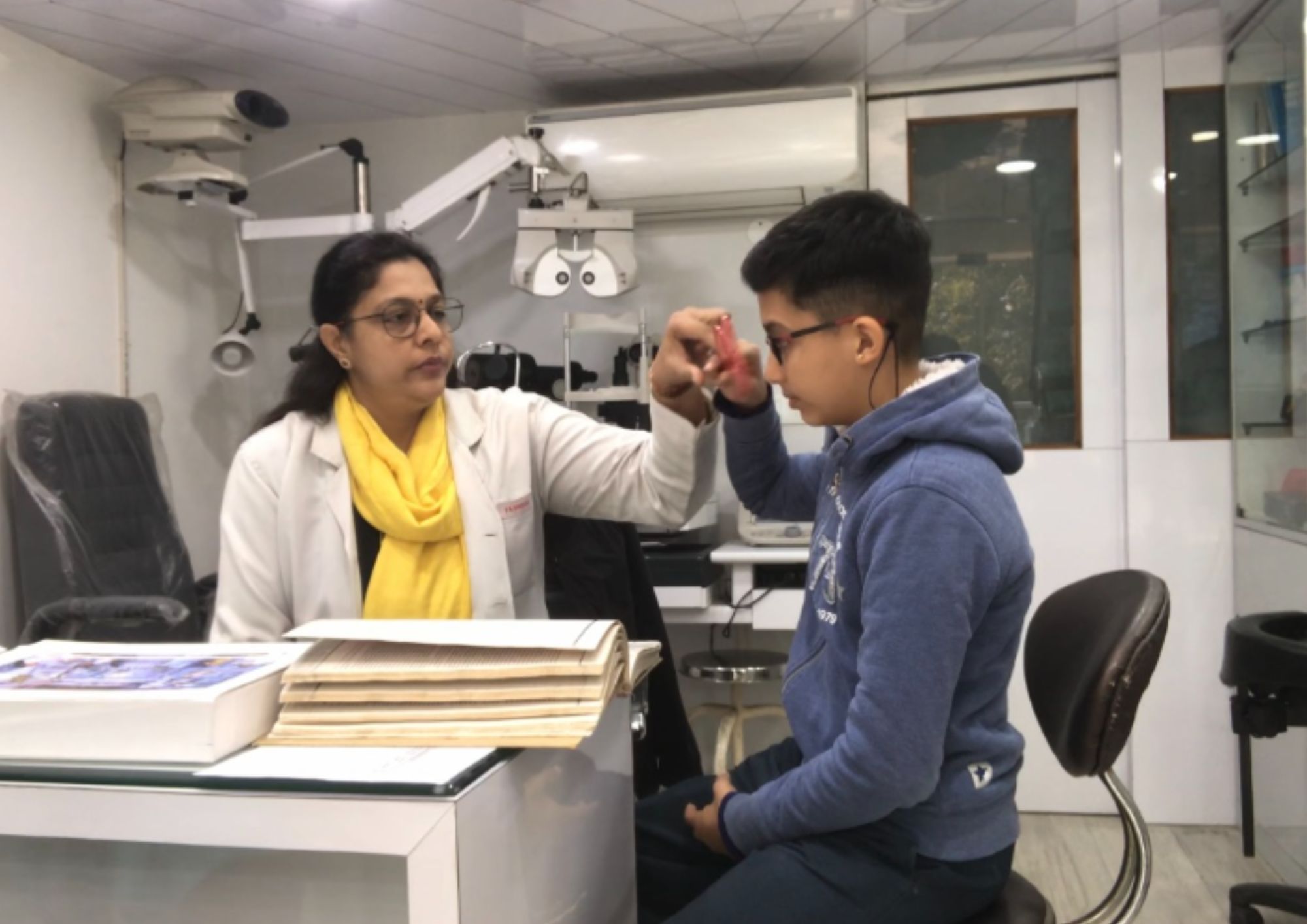Recognizing the Different Eye Conditions Dealt With by Specialized Eye Care Professionals
In the world of eye treatment, specialized professionals play a critical function in diagnosing and treating a large array of eye conditions. As we get started on this exploration of the various eye problems resolved by specialized eye care professionals, it comes to be evident that the elaborate web of eye wellness holds a myriad of remarkable insights waiting to be uncovered.
Typical Refractive Mistakes
Refractive mistakes are usual aesthetic problems brought on by a blemish in the eye's ability to appropriately focus light, leading to blurred vision. The most common kinds of refractive mistakes consist of nearsightedness (nearsightedness), hyperopia (farsightedness), astigmatism, and presbyopia. Nearsightedness happens when the eyeball is as well lengthy or the cornea is as well rounded, triggering far-off things to show up fuzzy. Hyperopia, on the various other hand, occurs when the eyeball is as well brief or the cornea is as well flat, causing close-by items running out focus. Astigmatism is identified by an irregularly designed cornea, causing altered or obscured vision in any way distances. Presbyopia is an age-related condition where the lens loses its flexibility, making it difficult to concentrate on close things.
These refractive mistakes can be fixed via different methods, consisting of eyeglasses, get in touch with lenses, or refractive surgery. Eye treatment professionals play a crucial function in diagnosing and taking care of refractive errors to assist people accomplish more clear vision and improve their lifestyle.
Age-Related Eye Conditions
One of the most widespread age-related eye problems is age-related macular deterioration (AMD), a disease that causes central vision loss and can make activities like reading and driving difficult. Cataracts, one more typical problem amongst older individuals, trigger clouding of the eye's all-natural lens, leading to blurred vision. Normal eye exams with specialized eye care professionals are critical for very early discovery and management of these age-related eye problems to maintain vision and preserve eye wellness as people grow older.
Vision-Threatening Illness
Vision-threatening diseases incorporate a variety of severe ocular conditions that have the possible to significantly influence a person's eyesight and general aesthetic feature. These diseases position a danger of irreversible vision loss if not quickly detected and dealt with by specialized eye care specialists. Some usual vision-threatening diseases include glaucoma, diabetic retinopathy, age-related macular deterioration (AMD), and retinal detachment.
Glaucoma is a team of eye problems that harm the optic nerve, typically due to high intraocular pressure, leading to outer vision loss and prospective blindness if left untreated. AMD is a modern problem influencing the macula, leading to central vision loss.
Early discovery, normal eye examinations, and prompt treatment are crucial in taking care of vision-threatening illness to maintain sight and keep quality of life. read this Specialized eye treatment professionals play a vital function in diagnosing, treating, and taking care of these problems to stop irreversible vision loss.

Corneal Conditions
Corneal problems include a range of problems that influence the transparent front component of the eye, referred to as the cornea. These problems can lead to pain, visual disruptions, and in severe situations, vision loss. One usual corneal condition is keratoconus, where the cornea thins and protrudes outward right into a cone form, triggering astigmatism and obscured vision. continue reading this Corneal dystrophies, such as Fuchs' dystrophy, cause steady vision loss as a result of irregular deposits in the cornea. Corneal abrasions, commonly brought on by injury or international things, can bring about pain, redness, and level of sensitivity to light. In addition, infections like keratitis can irritate the cornea, potentially resulting in scarring and vision disability if not promptly dealt with. Treatment for corneal problems differs depending on the specific problem however might consist of medications, call lenses, or in extreme cases, corneal transplants. Routine eye exams are important for early discovery and administration of corneal problems to maintain vision and eye wellness.
Neurological Eye Problems
Neurological eye problems involve conditions that impact the connection in between the eyes and the brain, influencing visual handling and general eye feature. These problems can manifest in numerous ways, impacting vision, eye motions, and even the coordination between the eyes. One common neurological eye condition is optic neuritis, characterized by inflammation of the optic nerve bring about vision loss, shade desaturation, and pain with eye movement.
Another considerable condition is nystagmus, where the eyes make recurring, uncontrolled movements, affecting visual acuity and deepness assumption. Furthermore, problems like amblyopia, often referred to as "lazy eye," arise from irregular aesthetic development in early youth, leading to reduced vision in one eye.
Neurological eye conditions call for customized treatment from professionals like neuro-ophthalmologists who have expertise in both neurology and ophthalmology. Medical diagnosis typically involves a thorough eye evaluation, imaging studies, and partnership with specialists to deal with the underlying neurological problems impacting the aesthetic system. Treatment strategies can include medication, vision treatment, or in serious cases, surgical treatments to manage these complicated conditions successfully.

Final Thought
Finally, specialized eye care experts deal with a wide range of eye conditions, including usual refractive errors, age-related eye problems, vision-threatening illness, corneal problems, and neurological eye conditions - refractive surgeries in al. By understanding these different conditions and looking for appropriate therapy from eye care experts, people can maintain optimum eye wellness and vision. It is essential to focus on regular eye evaluations advice and follow advised therapy strategies to protect and protect one's vision for the future